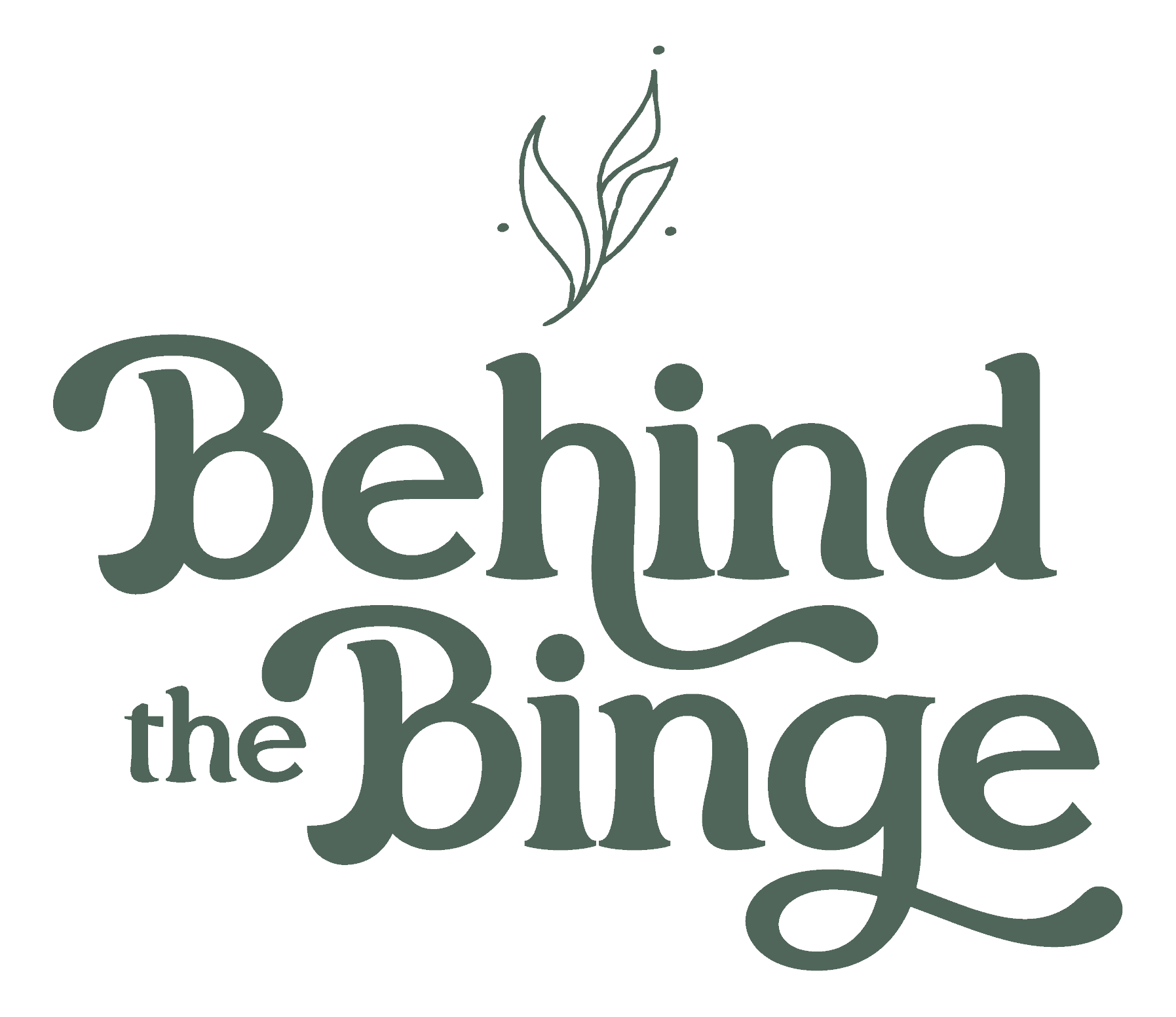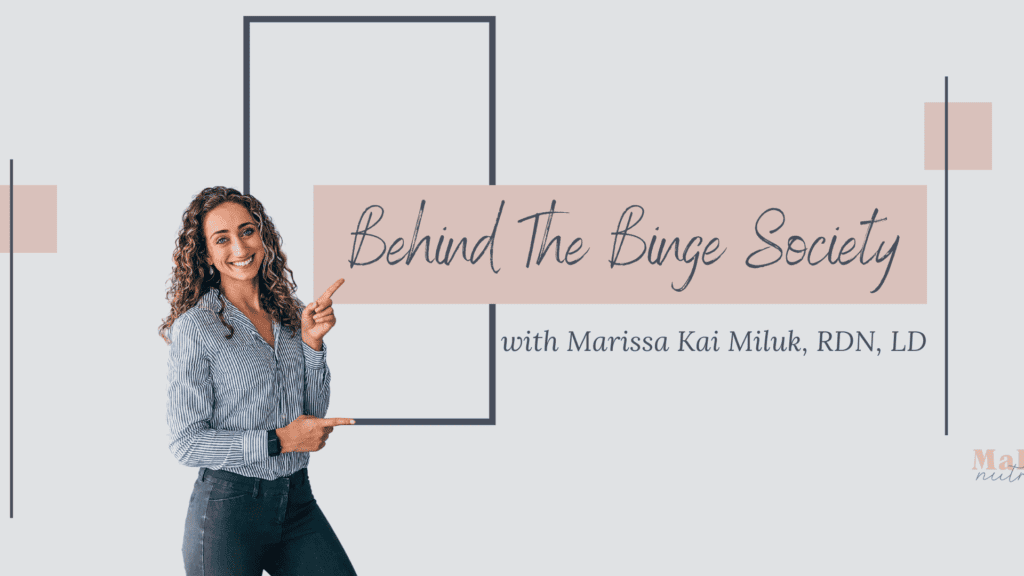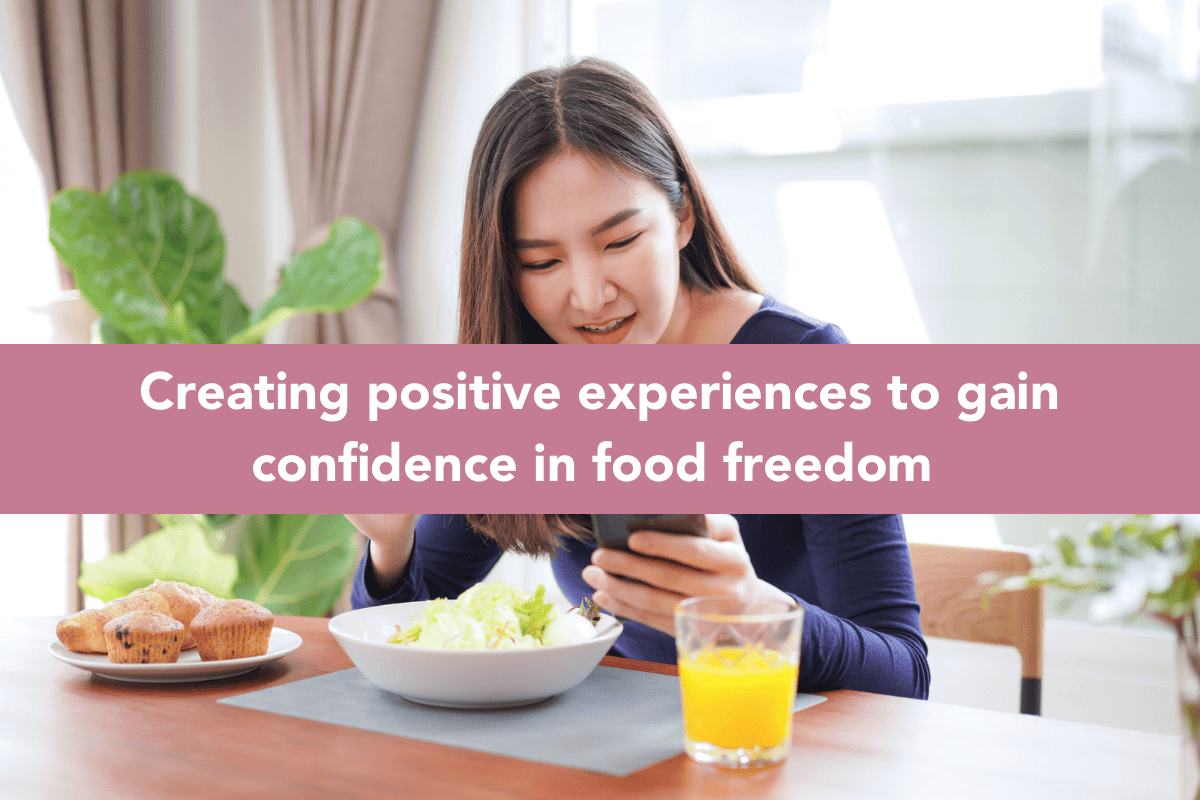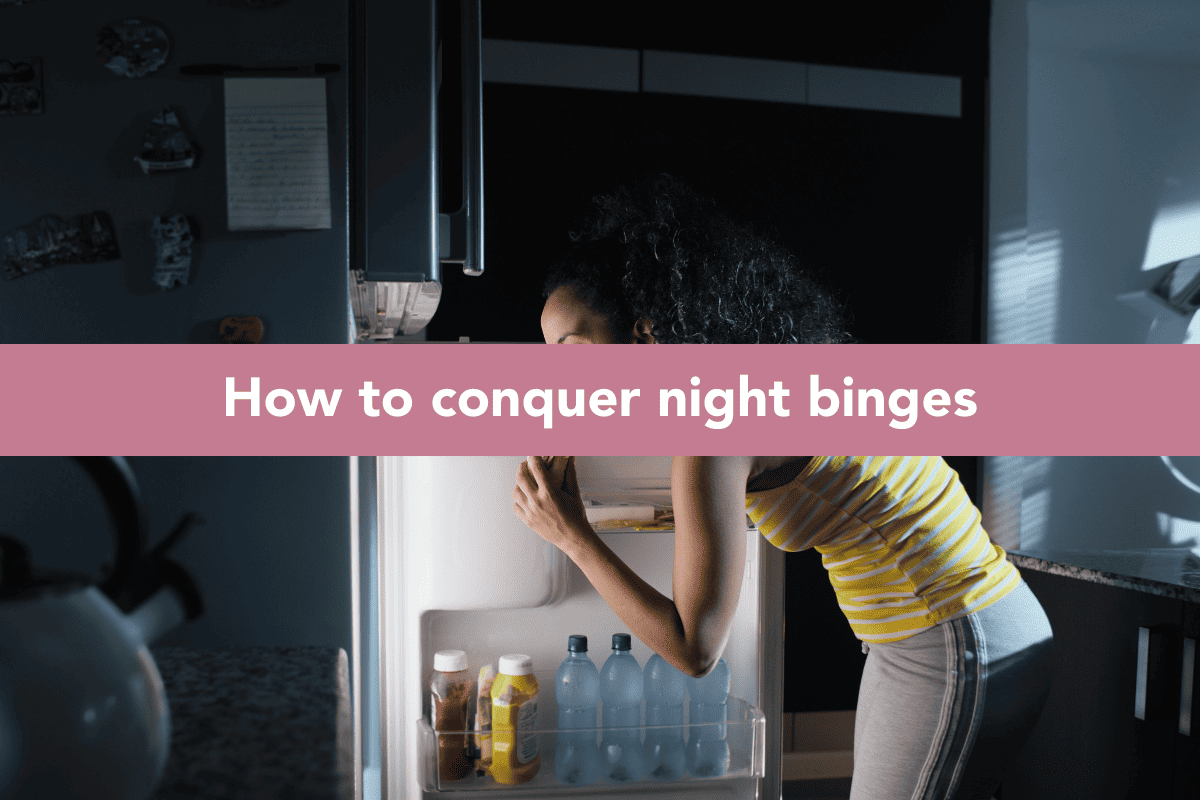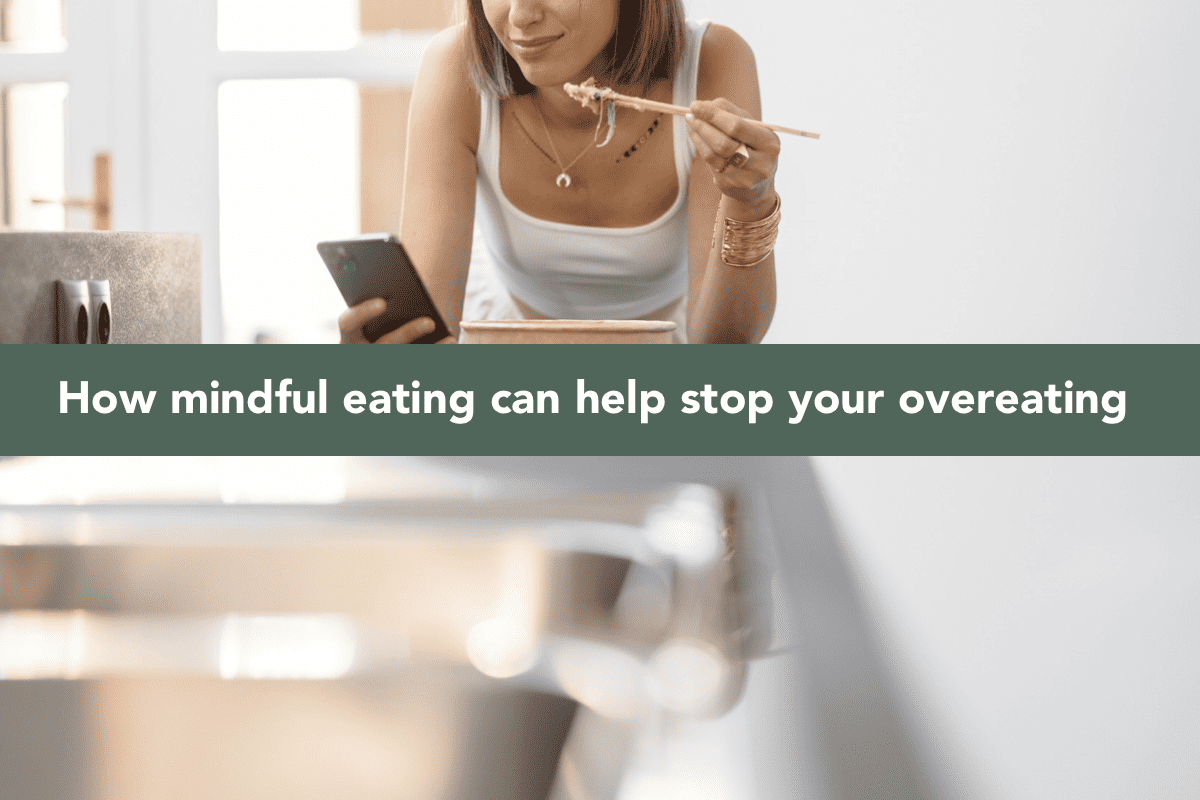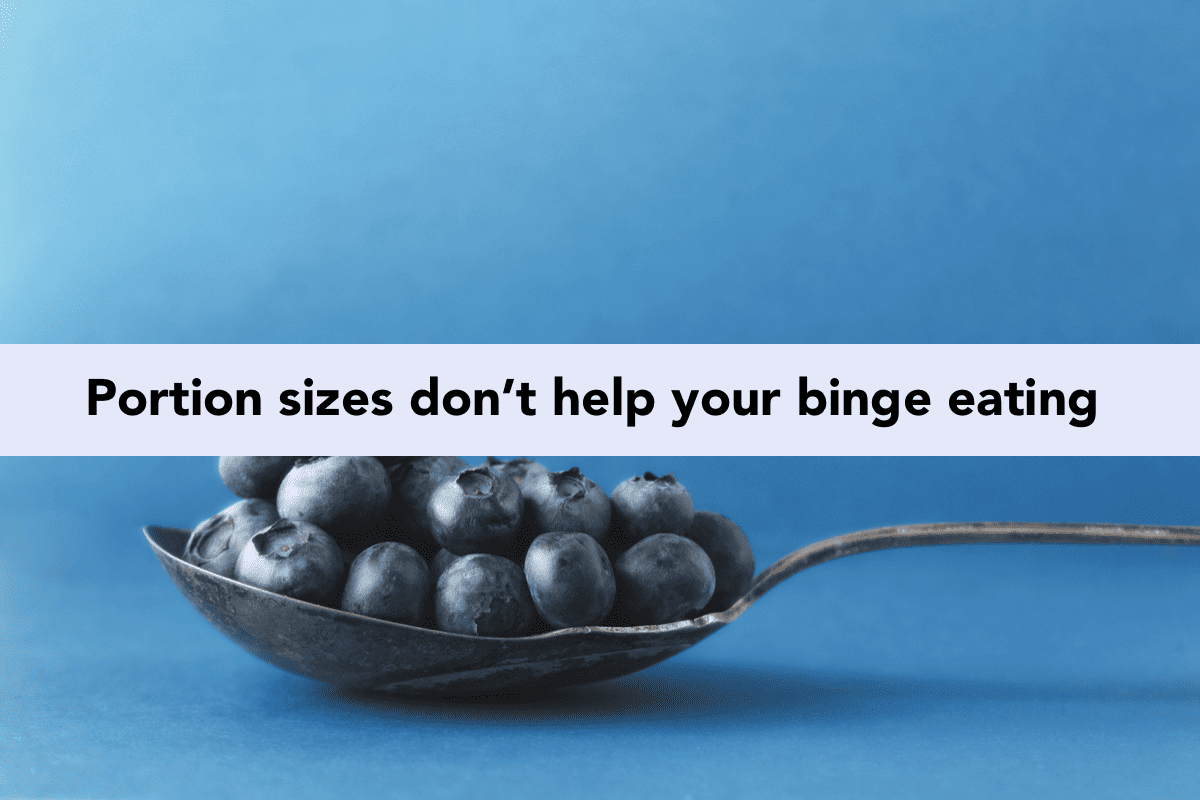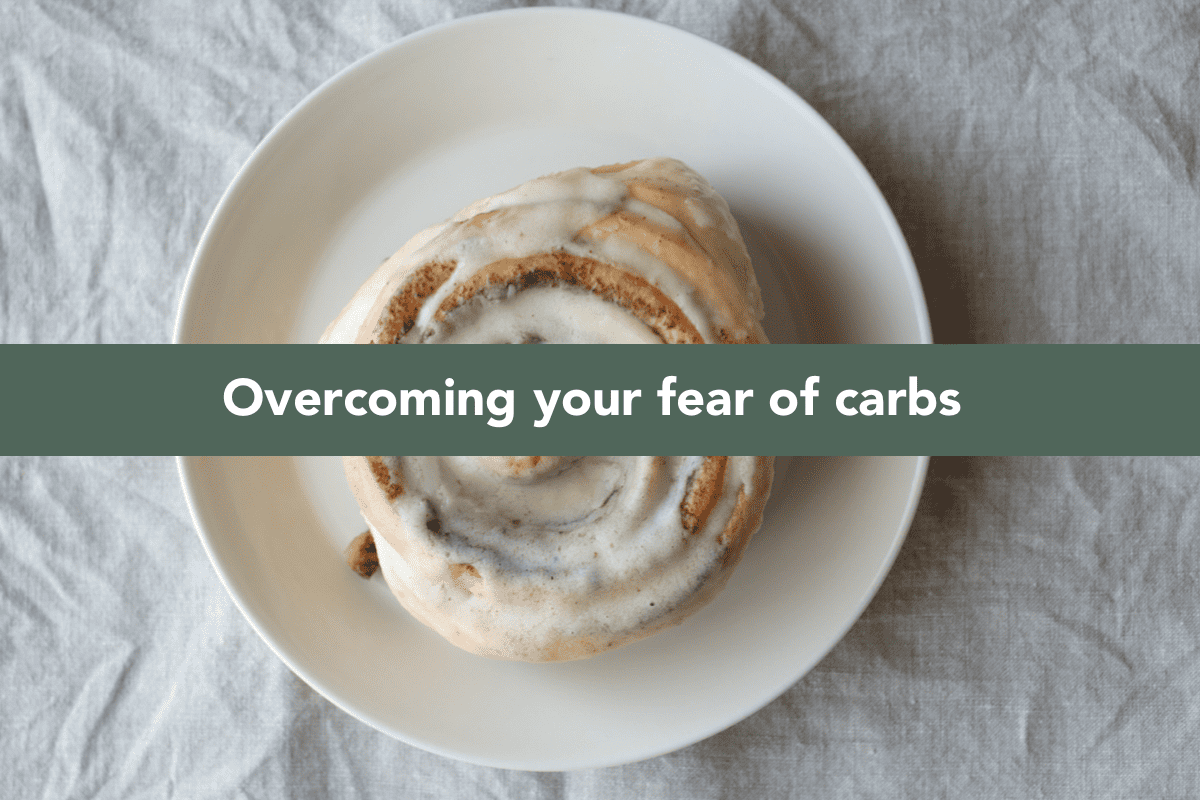Among the hundreds of clients I’ve worked with, it is fairly common to struggle with how to understand and attune to fullness signals when learning to eat intuitively. I always say, if you are coming to intuitive eating off of many diets, restrict-binge cycles, eating disorders, and/or weight cycling, you cannot “just listen to your body” and follow the book step by step.
When you’ve been ignoring your body’s signals in order to adhere to external diet rules, your body stops trying so hard to get you to listen. Signals become unreliable, like you may only feel your hunger when you’re ravenous. Making it virtually impossible to “listen to your body.”
Same with fullness, but with good reason. If your body cannot trust that it will get its needs met (like enough calories) consistently, it suppresses the hormone that sends the signal to your brain that you’re full, it’s called Leptin. This is because your body doesn’t want you to stop eating, it wants you to stock up on food because of fear there will be another “famine” (restriction). Your body is very smart, and this is just one way it does the best it can to keep you safe.
The good news is, this won’t last forever. With time and consistency, your body will begin to trust you again and start sending more reliable fullness signals and better regulate your appetite so you can listen to your body.
So what can you do while healing your relationship with food if you’re always “eating to a 10” and just “listen to your body” isn’t working?
Eat without distraction
Eating with distraction is a normalized thing, even I enjoy watching Netflix while. eating dinner (actually…I’m on peacock now #theoffice). But when you’re building attunement and trust back with your body, distraction can be a huge missed opportunity to become familiar with the ways your body is talking to you. Taste the flavors, notice the texture and temperature, take breaths between bites, feel how your body’s sensations change with every bite. At first, this might be a weird, uncomfortable experience, but with time it will become more familiar and help bring mindfulness to the experiences of eating even when you are distracted (no, you don’t need to eat without any distraction forever).
Remove pressure to stop (not a hunger/fullness diet)
This is one of the most common misconceptions about Intuitive Eating when starting, and one of the most harmful! We are human, we are destined to over and under-eat sometimes. The point is not to always be perfectly satisfied. That would be sad and a missed opportunity for the enjoyment of a birthday cupcake or charcuterie board. It’s okay to eat just to eat and not always stop when perfectly satisfied.
Put food away for later
Don’t get this twisted, this isn’t to restrict but to help decipher if you really need more food. Of course, if you want more food, eat more food. Often continuing to think about food is a sign that you need more food, you haven’t eaten enough. But if you’re really uncertain if you’re totally full or are reacting to the old diet culture scarcity mindset, put away the rest with full permission to have more later. This gives the opportunity to be curious about your needs and reinstall the belief that food is not going anywhere (a crucial mindset to have when overcoming binge eating).
Be mindful of hunger levels
Have you ever gone from 0 to binge so fast you didn’t even realize you were hungry? This is common after prolonged periods of restriction, via dieting or just an insecure access to food. This is because of what I mentioned in the intro, our body shifts hunger/fullness hormones to preserve energy if it doesn’t trust we will respond to the hunger cues appropriately. Build back body trust with consistent, reliable eating patterns—which include not waiting until you’re starving to eat! Waiting until your tank is empty is a fast-track to a binge. It’s pretty normal for anyone to scarf down food fast and in large volumes when overly hungry. Do you know what it feels like when you’re starting to get hungry?
Identify feelings of emerging fullness
With consistent eating patterns, become familiar with emerging signals of hunger. The first signs of emerging hunger aren’t likely the grumbling tummy we’re used to noticing. For many that is a sign of running on empty—fully ready to bite the door off the pantry. Pay more attention to your energy, focus, thoughts (are you thinking about food?), mood, etc. These subtle signs can help you tune into when your body is beginning to need some food so you can honor those signals before the insatiable binge hunger hits. (Be patient, curious, and consistent—attuning to these signals as your recovery will not come ‘intuitively’)
Consistency + time to “listen to your body”
Like I mentioned above (and repeatedly), it is unrealistic to expect you can just “listen to your body” and attune to your hunger signals right out the gate. Listening to your body is more than acting on impulsive signals. Listen to your body in this time of healing your relationship with food by nurturing it back to trust. The definition of trust is “belief that someone or something is reliable, good, honest, effective, etc.” If your eating patterns have not been reliable or effective at meeting your body’s needs, it is going to take time and consistent effort to re-establish that. I usually tell my clients to give themselves a year. It may be less, it may be more, but that takes the pressure off that this should somehow be a “quick-fix.”
If you want to learn how to pair logic with instinct to become an intuitive eater, enrollment is opening for the Behind the Binge Society this Friday (1/21/22).
